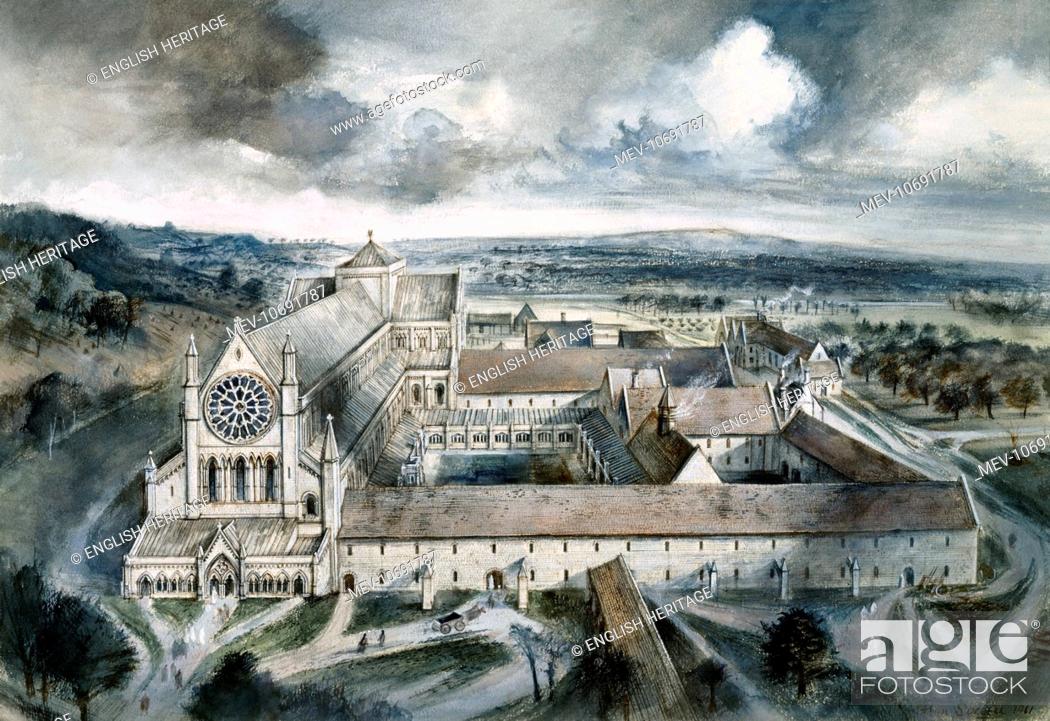Yesterday was a Halloween and to mark the occasion Medieval Histories sent round an article about a collection of twelve ghost stories written down by a Cistercian monk of Byland Abbey in Yorkshire about 1400. There is an introduction to them and a link to the text in translation of the stories from the publication in 1922 of the manuscript by the great scholar and connoisseur of ghost stories M.R.James and a related translation from 1924 at Byland Abbey Ghosts — Medieval Histories
Quite apart from their entertainment value and the fact that they give an insight into medieval life, the stories have the additional feature that they are frequently linked to specific places close to Byland - Ampleforth, Gilling, Ayton in Cleveland and Newburgh Priory - and that is both interesting as locating such stories and as an insight into the community that surrounded the abbey.

A reconstruction of Byland Abbey by Alan Sorrell
Image: English Heritage/ Age Fotostock
There is more about the physical setting of Byland in its medieval heyday in this article from 2008 about the monastic achievement in land drainage and fishponds around the abbey at New Research Suggests Byland Abbey In Yorkshire Was Grandest In The North


No comments:
Post a Comment